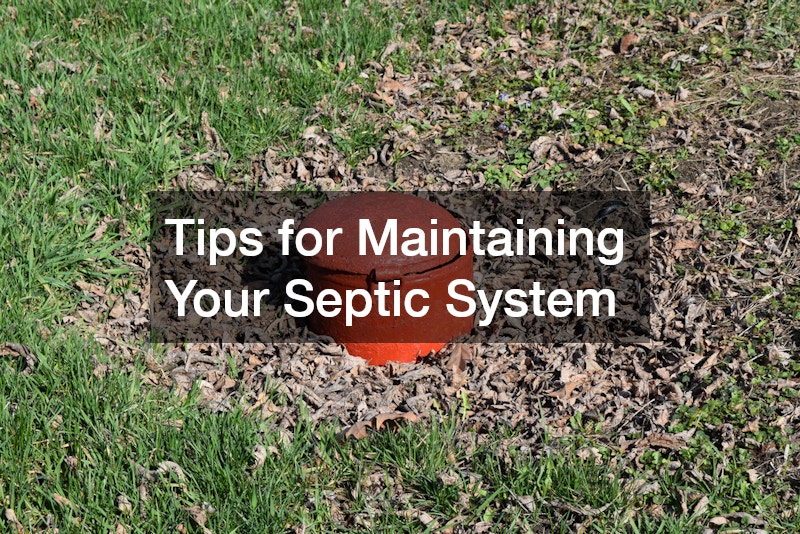Maintaining a home often involves managing systems that work quietly in the background, yet are essential for daily life. One such system is the septic system. Proper care of this system prevents costly repairs, health hazards, and environmental issues. Regular maintenance, particularly septic tank pumping, is a key component of keeping a septic system functioning efficiently. Many homeowners underestimate the importance of this task, often waiting until problems arise.
Understanding why routine pumping is necessary can save both time and money in the long run.
Understanding Your Septic System
A septic system is an underground wastewater treatment system, commonly used in areas without centralized sewer service. It consists of a septic tank, where solids settle, and a drain field, where liquids filter into the soil. Over time, solids accumulate in the tank, forming sludge. If left unpumped, this sludge can overflow or clog the drain field, causing backups and system failure.
Regular inspections can help homeowners monitor the condition of their septic system. Professionals look for signs such as slow drains, pooling water near the drain field, or strong odors around the tank. These indicators often signal that pumping is needed. By understanding the inner workings of the septic system, homeowners can appreciate why routine care is crucial.
In addition to preventing clogs and system failure, a well-maintained septic system also protects the surrounding environment. Untreated wastewater can contaminate groundwater, nearby streams, and soil, posing risks to both human health and local ecosystems. Routine care, including timely inspections and maintenance, helps ensure that waste is properly contained and treated, reducing the likelihood of environmental damage. Understanding these broader impacts reinforces the importance of staying on top of septic system upkeep.
The Benefits of Regular Pumping
Regular septic tank pumping offers numerous benefits. First and foremost, it prevents blockages and system failure. When solids accumulate excessively, they can enter the drain field, leading to costly repairs or replacement. Pumping removes these solids before they reach a critical level, ensuring the system continues to function efficiently.
Another key advantage is protecting public health. A malfunctioning septic system can release untreated wastewater into the surrounding environment, contaminating soil and groundwater. This can lead to the spread of harmful bacteria and pollutants, posing risks to both humans and animals. Routine maintenance, including septic tank pumping, minimizes these dangers by keeping waste contained and properly treated.
Efficiency is another benefit. A well-maintained septic system operates smoothly, reducing the likelihood of slow drains, backups, and unpleasant odors inside the home. By scheduling regular pumping, homeowners can avoid inconvenient disruptions to daily life while prolonging the lifespan of their system.
When to Schedule Pumping
Determining the right frequency for septic tank pumping depends on several factors, including household size, water usage, and tank capacity. For most households, pumping every three to five years is recommended. Larger families or homes with higher water usage may require more frequent service, while smaller households may stretch the interval slightly.
Professional septic service providers can offer guidance based on a system inspection. They consider tank size, the number of occupants, and other factors to create a maintenance schedule tailored to the household. Regularly following this schedule helps prevent unexpected issues and ensures the system operates efficiently. Waiting too long between pumpings increases the risk of sludge buildup, drain field damage, and emergency repairs.
Homeowners should also look for warning signs that indicate immediate attention is needed. These include unusually slow drains, gurgling sounds in plumbing, wet spots or pooling water around the drain field, and foul odors near the tank or inside the home. Addressing issues promptly can prevent minor problems from becoming major expenses.
Tips for Maintaining Your Septic System
While pumping is critical, there are additional steps homeowners can take to maintain their system. First, avoid flushing non-biodegradable items or harsh chemicals, which can disrupt the natural bacteria that break down waste in the tank. Items such as wipes, diapers, and grease should never enter the system.
Water conservation is also essential. Excessive water use can overload the system, reducing its efficiency and causing solids to move into the drain field. Simple measures like fixing leaks, using low-flow fixtures, and spacing out laundry loads help maintain balance within the tank.
Landscaping choices near the drain field should also be considered. Deep-rooted plants can damage pipes, while impervious surfaces like concrete can prevent proper drainage. Maintaining a clear, well-drained area around the drain field helps the system function as intended.
Regular septic tank pumping is a vital part of home maintenance that protects health, the environment, and property value. Understanding how a septic system works, scheduling timely pumping, and adopting proper maintenance habits all contribute to a system that runs smoothly and lasts for decades. By taking these proactive steps, homeowners can prevent costly emergencies and ensure their septic system remains a reliable, efficient part of their household. Regular attention to this often-overlooked system ultimately brings peace of mind and long-term savings.




